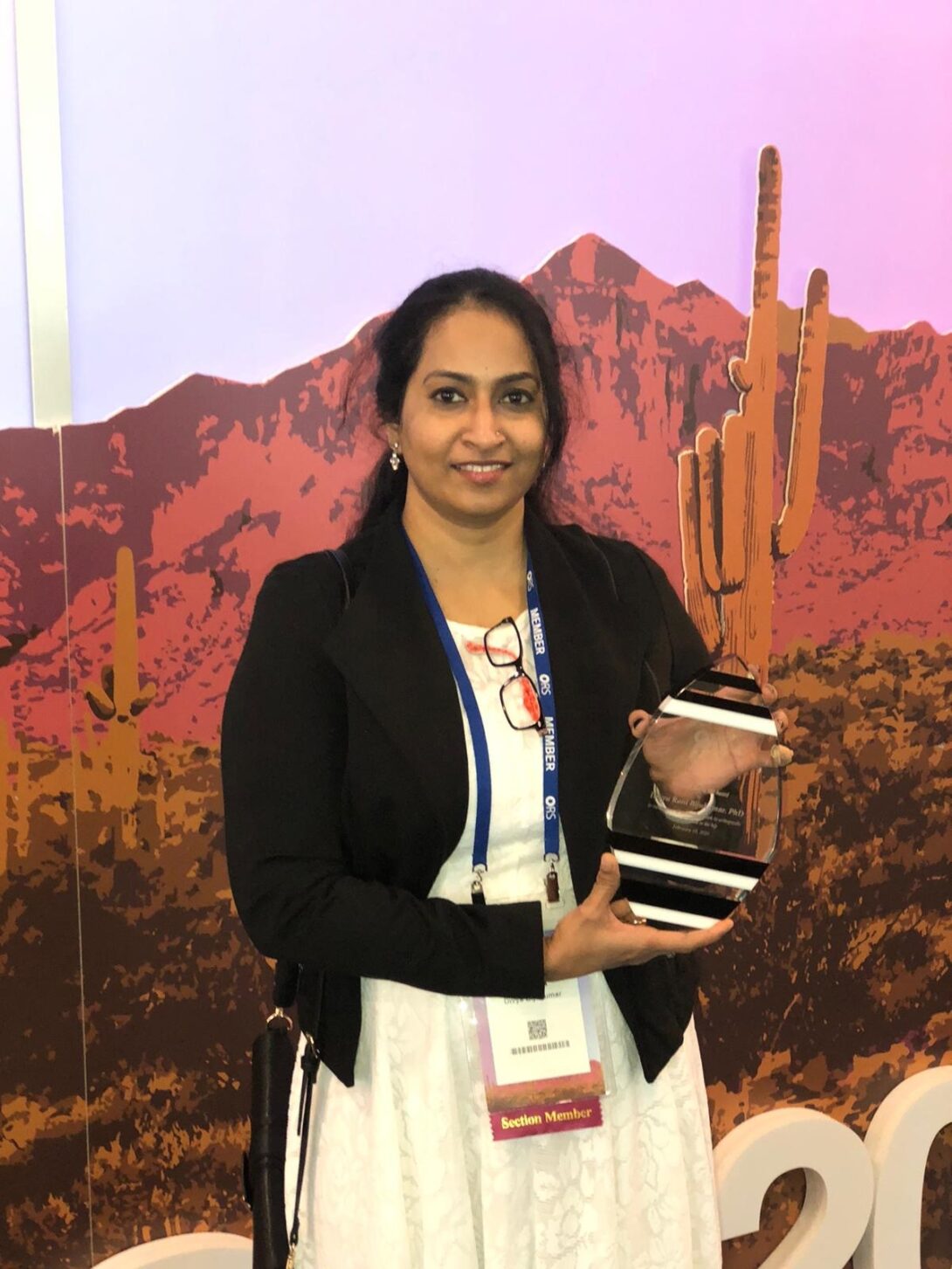Rockford Researcher Takes Home Harris Award for Orthopaedic Research
Rockford Researcher Takes Home Harris Award for Orthopaedic Research Heading link

Divya Bijukumar, Ph.D., received the 2020 William H. Harris, MD Award at the Orthopaedic Research Society conference in Phoenix, Ariz., on February 10, 2020. The award is given to an individual based on the quality and scientific merit of a paper accepted for publication in the Journal of Orthopaedic Research. The topic of the paper must be related to basic and/or clinical research involving the hip.
Bijukumar is a research assistant professor in the University of Illinois College of Medicine Rockford’s Department of Biomedical Sciences. She received the award, and its accompanying $5,000 honorarium, for her paper entitled “In Vitro Evidence for Cell-Accelerated Corrosion within Modular Junctions of Total Hip Replacements.”
Bijukumar’s paper focused on research her team conducted on artificial hip joints and how they break down in the body. Such corrosion of the metal joints can cause the implant to fail, necessitating another surgery to replace it. By using a machine to simulate several years of wear on a hip implant, the researchers were able to study the tiny nanometer-sized particles released by such wear and corrosion processes and how they interact with the surrounding cells.
“Overall, our research provided a new, lab-scale model for studying how implant corrosion takes place in the body that provided evidence that both mechanical and chemical factors contribute to the problem,” says Bijukumar. “We were also able to identify the role of certain types of cells, such as macrophages, that could alter the chemical environment within metal hip joint replacements and speed up the process of corrosion and subsequent early failure.”
Current hip joint replacements may function well for about 12 to 15 years, which often necessitates replacement when the patient is older and less able to bounce back from the surgery. This type of research provides hope that such implants – which are used about 332,000 times per year – could have longer life so patients have better outcomes.
The study that was conducted in the Regenerative Medicine and Disability Research Laboratory on the Rockford campus provided the groundwork for ongoing research in the new Blazer Foundation of Rockford Nanomedicine Laboratory that opened in January. Bijukumar is the director of the laboratory where she uses nanotechnology to study the effects of artificial joints on the body at the molecular level.
Members of Bijukumar’s team from the University of Illinois College of Medicine included former graduate students Shruti Salunkhe and Abhijith Segu from the Master of Science in Medical Biotechnology Program; summer science intern Dalton Morris; and associate professor Mathew T. Mathew, Ph.D. Deborah J. Hall and Robin Pourzal, Ph.D., from Rush University’s Department of Orthopedic Surgery also collaborated on the research.
The project is moving forward with further collaboration with UICOMR faculty Guoxing Zheng, Ph.D., associate professor in the Department of Biomedical Sciences; Sam Pope, Ph.D., research associate professor in the Department of Health Sciences Education; and Mark Barba, M.D., clinical assistant professor in the Departments of Surgery and Surgical Specialties and Biomedical Sciences.
This research was mainly funded by National Institutes of Health (NIH) through R01-AR070181.